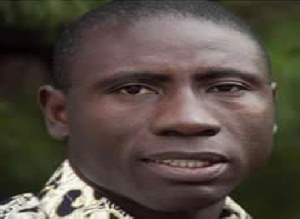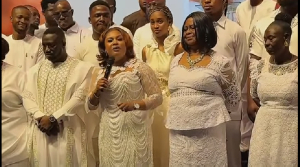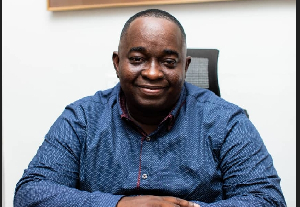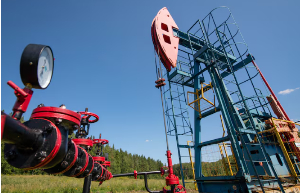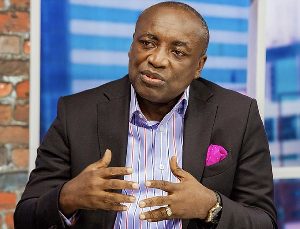About a year before I left Winneba for the university, I had cultivated a one-acre mixed farm near my village. I had grown maize, cassava, pepper, cabbage, and some okro. In the midst of less rainfalls, my farm had done well, with the pepper and cassava being the most successful.
I left the blossoming farm in the hands of my cousin, let me call him Kow Bondzie. Kow Bondzie lived with his family about a kilometre away from the farm. His children were like nephews and nieces to me. I was helping them with their homework, and Kow Bondzie’s wife had on a few occasions offered me food, so I knew I was leaving my farm in safe hands.
Each time I had returned from the university, Kweku Atta, who also lived close to Kow Bondzie’s family house, told me several instances when Kow Bondzie’s wife had stolen some of my maize, and some of my cassava. I was told of stories where Kow Bondzie’s wife had harvested my pepper and sold them, and pocketed the money.
Frustrated with these unabated reports, I brought the matter before one of our elders, for settlement. It turned out, that, there is some truth in the allegations Kweku Atta was levelling against Kow Bondzie and his wife. There had been a few occasions when Kow Bondzie’s wife had harvested the pepper and kept the money for her children’s school fees.
Amidst vehement protests from Kow Bondzie and his wife, our elders ruled that the farm should be handed over to Kweku Atta, and his wife, for better protection. Kow Bondzie had argued that even though there had been a few dishonest acts on the part of his wife, he felt they were the better caretakers of my farm than Kweku Atta and his wife, for they knew that Kweku Atta was only envious of the cordial relationship they had with me.
I left for school again, to open my first second Semester. Two months into the semester, I came home, and when I visited my farm, the cassava was almost completely gone. The pepper had completely withered, with no prospect of harvest. The adjoining cabbage had been harvested prematurely, and the entire farm itself had been enveloped with weeds, a clear manifestation that Kow Bondzie was better at taking care of my farm than Kweku Atta.
In recent times I feel I am failing in my duties as a Journalist. Perhaps I have allowed my sympathies with the NPP to water down my enthusiasm in digging out issues, and putting them out there in much the same ways as I did in the past years.
I recall several instances when in the year 2016 I had visited ministries, departments and agencies, just looking for information for my column, and to prove how corruption had engulfed our society. In the process I put myself in jeopardy, breaking a lot of relationships I had in the NDC. I did not bother about those broken relationships, because I thought I was on a national assignment, to effect change, and I was so sure that change needed to come.
I had perceived Kofi Adams, the then National Organizer of the NDC, as an epitome of corruption. I heard stories of Ibrahim Mahama taking all the contracts in this country. I heard stories of Dr. Opuni running down COCOBOD. All of these added to my anger in search of any means to change John Mahama, and to bring in Nana Akufo-Addo, for in him I had seen the protection of our resources, and I knew that never again could any member of the governing party be allowed to take the state resources for granted.
I had seen how power and money were being used to put down all of us. Stan Dogbe’s reported unhindered power at the Jubilee house, and how he handled Journalists was obnoxious. The talk of inflated projects such as the Kumasi and Tamale airports and many of such corrupt conversations were all fueling my resolve to support Nana Addo.
I was so sure that under Nana Addo, justice would be served, and no individual can act with impunity. Journalists would be safer to practice their trade. Businessmen and women would have a fair chance, regardless of their political affiliation, to compete for contracts, without being hindered by their background. I knew there was going to be zero tolerance for corruption.
But in the last couple of years, I have seen greed in proportions I have never witnessed in my life. I have seen a sharp rise in the fortunes of people who were very poor just some few months ago, unexplained rise from poverty to escalating opulence. I have seen naked stealing, stealing in ways that is shameful and painful.
I have resisted saying these for several months, but I can’t hold back anymore. It is just disgusting how some individuals don’t seem to bother how their filthy actions are impacting on the very NPP party that brought them the power they are exercising. It is like they see the present power as their cocoa season, and they want to steal as heavily as possible, even if it means the NPP party going into opposition again.
In a recently published global corruption perception index, Ghana dropped 11 places from the 2016 ranking, to place 81 out of 180 countries in the 2017 exercise. Our score of 40 out of 100 is one of the lowest in our democratic history. And what worries me is that usually, new governments come in with a lot of energy and goodwill. Therefore 2017, being the NPP’s first year in office, the appetite for corrupt officials to steal money is expected to be lower. Usually, governments become more corrupt towards their last years, or their second terms. So for us to drop 11 straight ranks, to where we are at the moment gives me a sense of failure.
In a lot of instances, I am seeing the story of Kweku Atta playing out at me. I and a couple of others have done some small work around the country, and we have come to one preliminary conclusion; that there is more impunity now than there was in recent years. In fact, in some cases, individuals have dared in the open to loot everything that belongs to all of us, for themselves. Ghana is looking, in the eyes some few, like the days of the partitioning of Africa; individuals are seeing what they have been put in charge of as their share of the spoils of war, and are taking everything, just everything for themselves.
Of course, the government is running a number of capital intensive and operationally high cost and commendable development projects, which I support. But what is the point about these developments when all these projects are being jeopardized by some greedy individuals who know no bounds in their journeys into opulence?
Still, the battle is the Lord’s!
Opinions of Wednesday, 13 February 2019
Columnist: James Kofi Annan

